Beijing hits back as Marise Payne cancels Daniel Andrews’ Belt and Road agreements
The Foreign Minister says there may be more to come amid the tearing up of Victoria’s Belt and Road agreement with China.
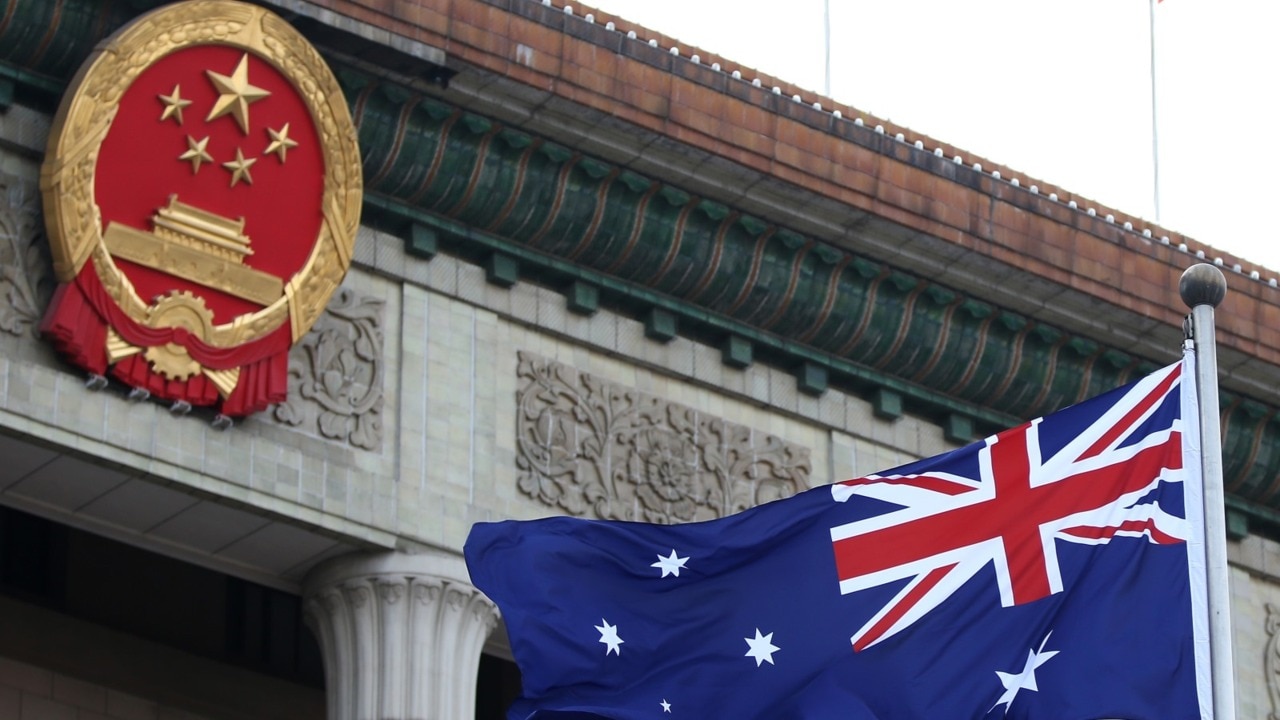
Foreign Minister Marise Payne says she expects more deals to be scrapped following the tearing up of Victoria’s Belt and Road agreement with China.
Speaking in Wellington alongside her New Zealand counterpart Nanaia Mahuta, Senator Payne said she anticipated there would be “further decisions” made on agreements between Australian institutions and foreign powers.
“They will be informed by my department on the consistency of all of those arrangements with the relevant legal test as it’s set out in the legislation,” she said.
She said there was a “fundamental difference” between the governance of New Zealand and Australia.
“We are, of course, a federation so states and territories that enter into those agreements are now required to consult and to advise the commonwealth as they do that. The process that I’m going through now is addressing those that have been made in the past.”
Senator Payne spoke of her decision to tear up four agreements entered into by the Victorian government concerning Syria, Iran, and China. “The determination that we have formed is that they are not consistent with Australia’s approach to foreign policy and under the legislation will be terminated,” she said. “I do expect there will be further decisions to be made in due course.”
China hits back over BRI
Earlier, Beijing has hit back after Senator Payne tore up Victoria’s controversial Belt and Road agreements with China, warning the “provocative” move could throw relations between the two countries “into the abyss.”
In the first use of new powers allowing the commonwealth to unilaterally veto deals it views as contrary to the national interest, Senator Payne revealed on Wednesday night she had cancelled four agreements — all negotiated by Victorian authorities — including a 2004 deal between the state‘s Education and Training Department with Iran and a 1999 scientific co-operation agreement with Syria.
The two BRI deals include the 2018 Memorandum of Understanding between the Andrews’ government and the National Development and Reform Commission of China, and the 2019 Framework Agreement, which built on the earlier deal.
“I consider these four arrangements to be inconsistent with Australia’s foreign policy or adverse to our foreign relations in line with the relevant test in Australia’s Foreign Relations (State and Territory Arrangements) Act 2020,” Ms Payne said.
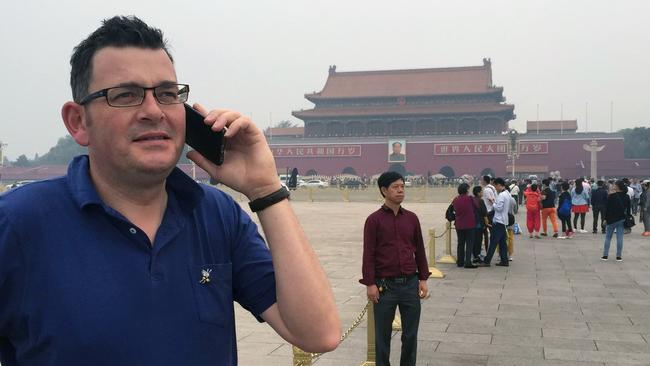
A spokesperson for the Chinese Embassy said the move was “another unreasonable and provocative move... against China.”
He added: “It further shows that the Australian government has no sincerity in improving China-Australia relations. It is bound to bring further damage to bilateral relations, and will only end up hurting itself.”
The Global Times, Beijing’s mouthpiece, went further, quoting Chen Hong, a professor and director of the Australian Studies Centre at the East China Normal University that the move marked a “significant escalation that could push icy bilateral relations into an abyss.”
The newspaper reported: “The latest move appears to be a calculated and deliberate step taken by Australia against China and could prompt a response from Beijing”.
Senator Payne on Thursday said the new powers weren’t aimed at “any one country” and that Australia would continue to emphasise its commitment to engaging with China.
“It is most certainly not intended to harm Australia’s relationships with any countries,” she told ABC AM.
“I hope that if there are any concerns they will be raised with the government.”
Senator Payne rejected the assertion that Australian producers should prepare for more retaliation from China – despite wine and barley producers being slapped with tariffs, and seafood, coal and timber facing customs issues last year.
“Australia is operating in our national interests, we are very careful and very considered in that approach,” she said.
“It’s about ensuring we have a consistent approach to foreign policy.”
Asked this morning if the Biden administration had been in touch with Canberra over the issue, White House Press Secretary Jen Psaki said: “How we can work together as a global community and in a coordinated fashion as it relates to China is part of nearly every discussion the President has with a European partner or country in the region”.
Senator Payne’s move follows an examination of more than 1000 agreements with foreign countries struck by states and territories, local government and universities.
Announcing the new powers last year, Scott Morrison said Australia’s foreign policies and relationships “must always be set to serve Australia’s interests”.
“One of the most important jobs of the federal government is to protect and promote Australia’s national interest,” the Prime Minister said.
“It is vital that when it comes to Australia’s dealings with the rest of the world we speak with one voice and work to one plan.”
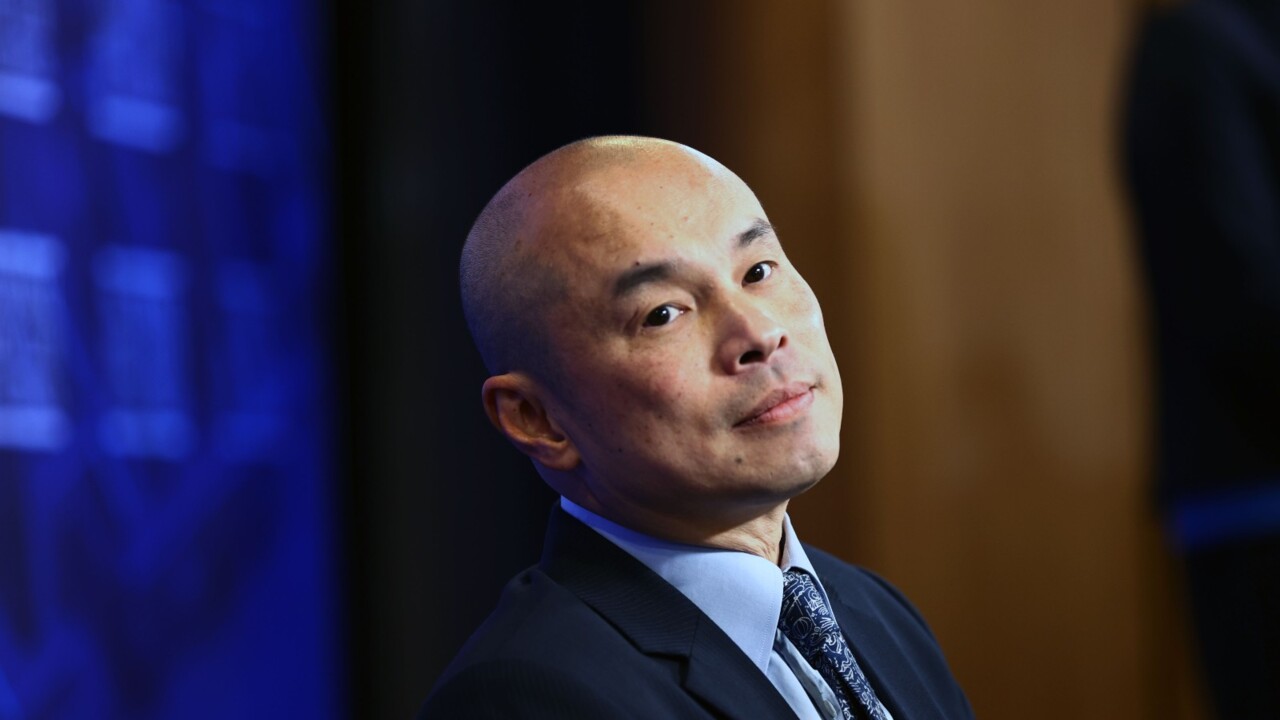
Senator Payne said she had decided to approve a proposed MOU between Indonesia’s Energy Ministry and Western Australia’s Department of Jobs, Tourism, Science and Innovation.
The agreements examined “reflect the richness and breadth of Australia’s international interests”, and the role played by Australia’s states, territories, universities and local governments “in advancing Australia’s interests abroad”, she said.
Senator Payne said she would continue to examine foreign arrangements notified under the scheme, which commenced in December last year, but expected the “overwhelming majority” to be unaffected.
Victorian Premier Daniel Andrews last year defended his state’s deal with China after the Morrison government announced in August that it would push through its Foreign Relations legislation, saying Victoria relied heavily on international students due to its lack of natural resources.
“I dare say that given the announcements the Prime Minister’s made … he’ll no doubt very soon be able to list a full range of other free-trade agreements and other markets that we’ll be sending Victorian products to. I look forward to that,” he said.
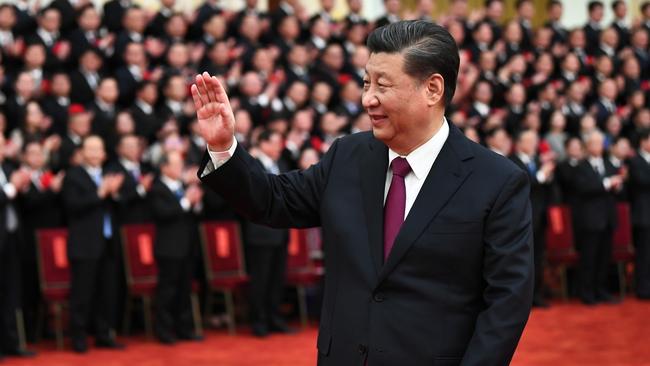
President Xi Jinping’s BRI program is used as a vehicle by the Chinese Communist Party to expand Beijing’s soft power reach into the region, but the deals have raised alarm in intelligence and security agencies over heightening levels of Chinese espionage and coercive influence.
Victoria’s BRI framework – deepening co-operation between the state and Beijing on infrastructure, innovation and trade development – was always expected to be one of the first major agreements to fall under Mr Morrison’s Foreign Relations Bill.
The Victorian government’s 2019 framework agreement with the National Development and Reform Commission of China saw both sides agree to the establishment of a working group to promote the BRI, to be jointly chaired by Mr Andrews and Vice Chairman Ning Jizhe of the NDRC.
Both sides agreed to closer communication – including visits and video conferences – to increase the “participation of Chinese infrastructure companies” in Victoria’s construction program; deepen research and innovation in high-end manufacturing, biotechnology and agriculture; enhance two way trade and strengthen co-operate in the management of ageing populations.
Under the agreement, Chinese infrastructure firms were encouraged to establish a presence in Victoria with a view to “participating in the tendering process for Victoria’s significant projects” while the state agreed to send regular delegations of local infrastructure companies to China.

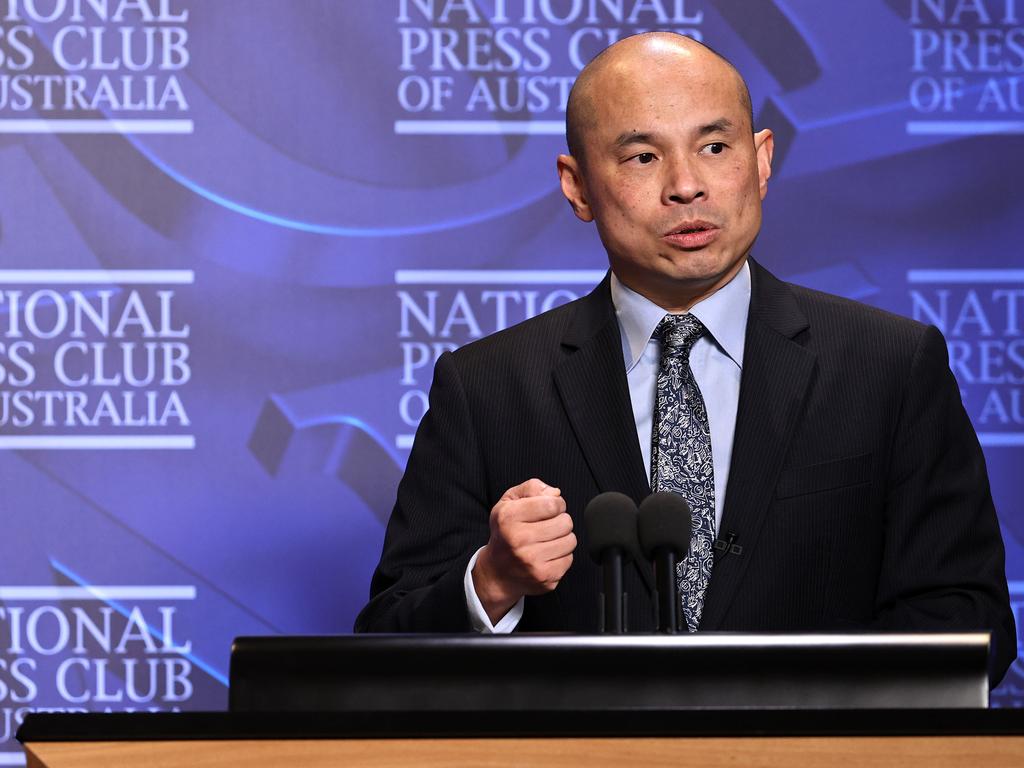
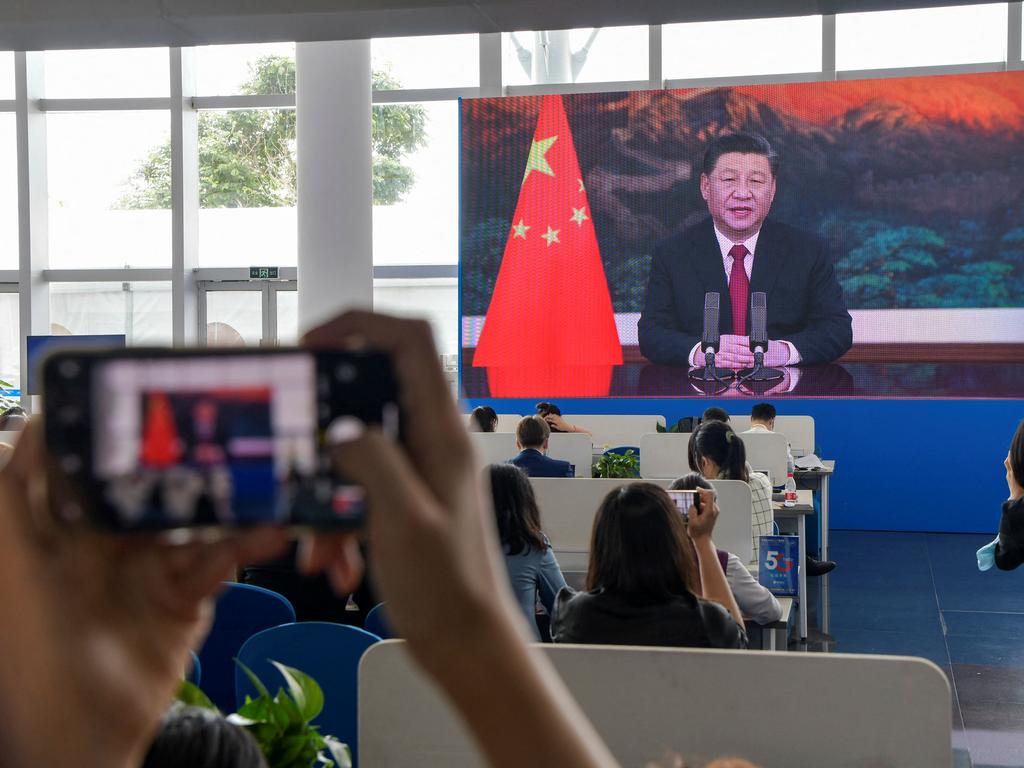

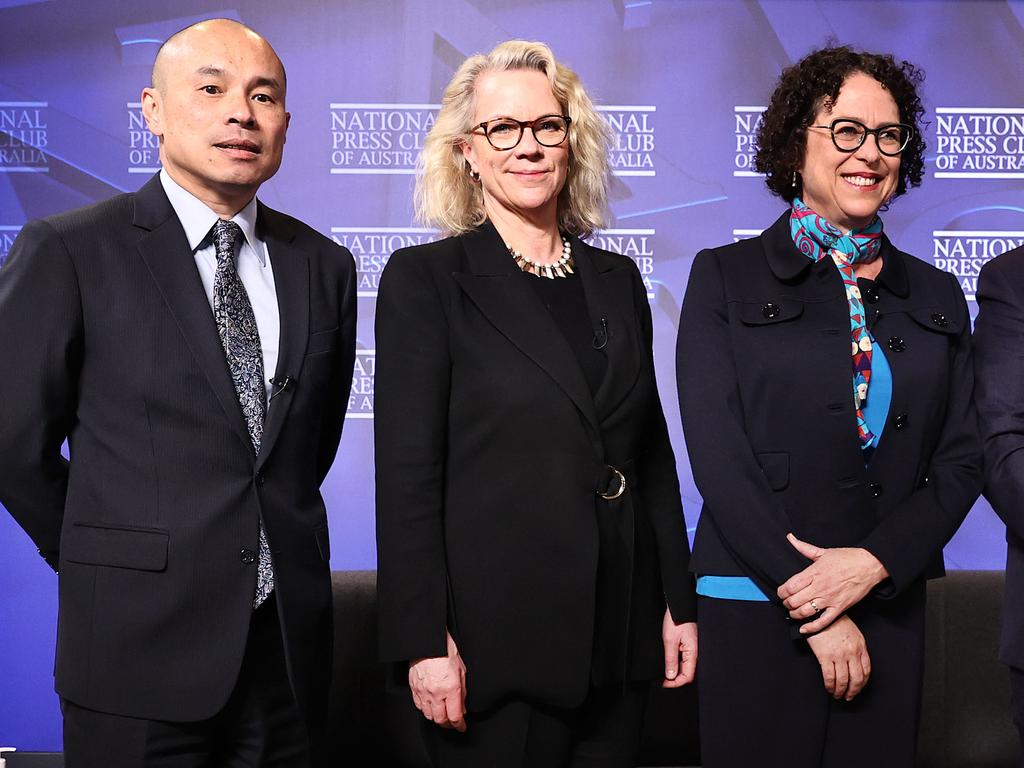


To join the conversation, please log in. Don't have an account? Register
Join the conversation, you are commenting as Logout